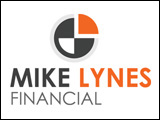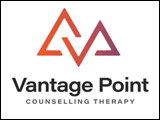When is it OK to say, enough is enough. I was with a patient awhile back and this was the question: “When is it OK to say enough is enough?”
Eighty-two years ago, penicillin was discovered. Years ago if you got an infection, either your body fought it and eventually you recovered or you died. But medical science has come along way since 1928. Today, there are six main types of antibiotics and within those types there are over 45 different antibiotics that can be prescribed. Some are used for very specific bacterial infections; others are broad-spectrum and can be used for a wide variety of bacterial infections. Very few people die of an infection these days, most are very treatable. This is true of many medical conditions that years ago lead predictably to death.
But as far as we have advanced in the medical sciences, there are still times that no matter what is done, the disease progresses to a point where we are doing little more than managing symptoms or prolonging the inevitable – death. Diabetes is one of those diseases that if not controlled well leads to progressive damage to the body. Many times persons suffering with diabetes don’t take the disease seriously enough and they begin to experience the ravages of the disease. Diabetes can damage one’s organs: the heart, the eyes, the blood vessels, the kidneys. Because it often impacts circulations, diabetics often struggle with foot ulcers, infections and many times need amputations. Kidney failure requiring dialysis, hearts attacks and strokes are also common for those suffering with diabetes as is blindness. There are times that diabetics ask this question, “When is enough, enough?”
Another disease that may lead to the asking of this question is cancer. Gratefully there is considerable momentum that continues to bring in money for cancer research, but breakthroughs are slow and the discoveries are generally small. Early detection is still the most promising approach and as many of you know, there are people who don’t have symptoms that would lead to investigation until the cancer is in its advanced stages and then there is little that can be done to fight the disease. I have met people in the fight against cancer that look at me and ask, “When is it OK to say enough is enough?”
When have we done enough? Now this is a tough question and as much as we dislike questions that don’t have one right answer, some questions are like that. There are a variety of approaches to this question so let’s take a look at some of them.
One approach to the question is that a person should do everything humanly possible, for as long as possible, no matter what. Those who take this approach believe that to do anything less than this is to give up and they see giving up as a sign of weakness. For those who believe in God they may see this as an unwillingness to leave the question of life and death in God’s hands.
Another approach to this question is that a person has the right to chose whether or not to treat a disease. Most who believe this would encourage treatment when it is proven to be effective in curing disease or maintaining quality of life with the disease. But when treatment is ineffectual or the chances of efficacy are not good, it is believed that the individual is well within their rights to make the choice not to begin or continue the treatment of the disease.
Some believe that God is the only healer and they recommend that we not to look to medical science at all but to trust fully in the Lord, believing that if it is God’s will, healing will be granted, and if not, then it is the Lord’s time for that life to come to an end.
You may have noticed in each of these responses to the question “When is enough, enough?” that there is an element of belief. A spiritual value held by the person that drives them towards one or the other response to this question. This should not surprise us, for the human spirit constantly is searching for something to believe in. It is part of human spirituality that an individual believe. Now the object of that belief is varied and we often fall into making judgments against those whose beliefs are different than ours. But the point is, the answer to the question: “Is it Ok to say, enough?” is largely dependent on a person’s spiritual beliefs.
For example we have all heard the news stories of the Jehovah’s Witness family whose child is in an accident, lost a lot of blood and the recommended medical treatment is a blood transfusion. We have made judgments in our hearts, either in support of the parents or against the parents, even though they are making a choice about when “Enough is enough?” based on their strongly held beliefs. Many times the courts decide that the parent’s beliefs should not be respected and that the child should receive the medical treatment, creating a huge spiritual problem for the family and a huge ethical conundrum for those providing the treatment.
Or perhaps you have been faced with the question about a DNR (do not resuscitate) order when admitting a parent to a personal care home. When you heard about this you may have thought: “What, if my loved one has a heart attach. Are you’re suggesting we just let her die?” The reaction is common but this may be because we have little information about the efficacy of CPR in the frail elderly. Studies have demonstrated that the efficacy of CRP in the frail elderly is 0% – 1.7%. Of those very few that survive CPR in this population, the person on whom CPR was done often then suffers from multiple broken ribs and other side effects of this invasive procedure making me ask the question, “Should CPR ever be used on a frail elderly person in a nursing home?”
Or a family member was in a serious auto accident. He has been in a comma since the accident, not able to breathe on his own; eat on his own, drink on his own. He is on a ventilator and several attempts to withdraw the ventilator have failed. So, when is enough, enough?
This is a hard question and ultimately your answer will be found in examining your beliefs about life and death. So, maybe it would be useful for us all to consider the following questions: Do my beliefs and values require me to seek every possible medical intervention, regardless of the hoped for efficacy? Do my beliefs demand that I accept or refuse to accept certain medical interventions? Is it OK to just let nature take its course? Is it OK to say, “I don’t want any more treatments, I don’t want any more medication, I don’t want to try to squeeze any more time out of this life”? Is it OK to say, “ENOUGH!”?
Chaplain's Corner was written by Bethesda Place now retired chaplain Larry Hirst. The views and opinions expressed in this blog are solely that of the writer and do not represent the views or opinions of people, institutions or organizations that the writer may have been associated with professionally.



